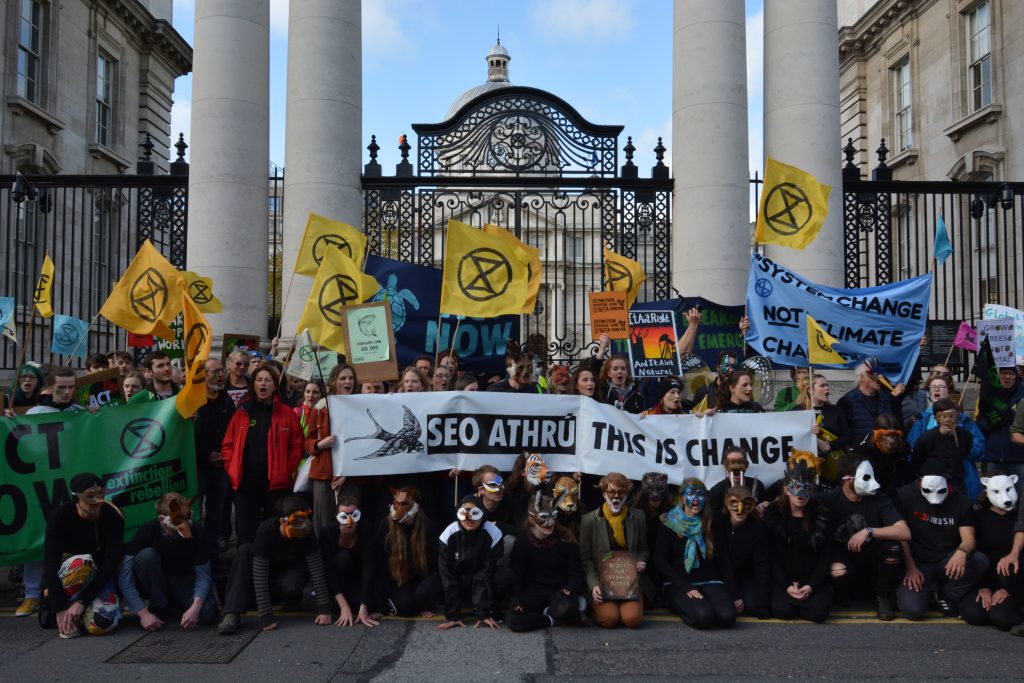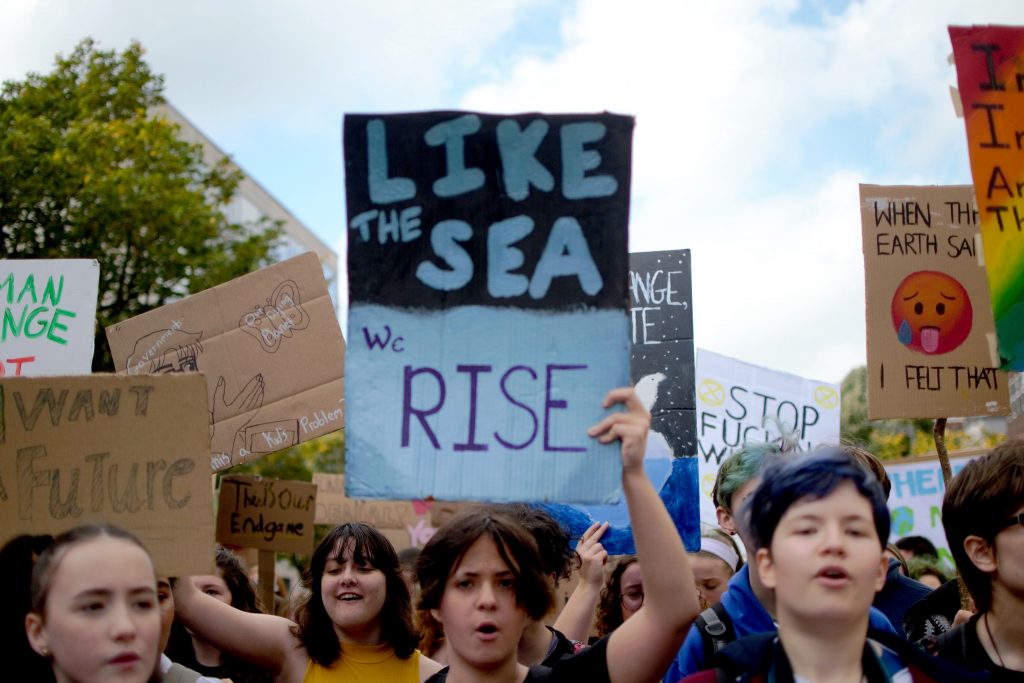The individual: what can I do about climate breakdown?

March 24th, 2020
The question I get asked far more than any other is “what can I, as an individual, do about climate change?”
Usually, people will preface this question by saying that they are trying to do their part by driving less, offsetting flights, using recycled paper or something similar to that effect. “It’s just so hard, and I feel so guilty about it” is often what they say next. It is hard. Yet it’s also ineffective.
The climate scientist Michael Mann recently pointed out something that I’d noticed before, but not fully connected the dots on. He said that there has been a dramatic shift over recent years from fossil fuel companies and governments. They’ve gone from denying, or questioning the science of climate change, to offering small, bite-sized solutions that can be taken at an individual level to reduce your carbon footprint.
In my school, a number of posters have recently been put up which highlight this. While it’s excellent that more attention is being paid to the crisis at hand, we aren’t going to avert catastrophic climate breakdown by “cutting our showers to 5 minutes”. The secret solution to staying under 1.5 degrees of global heating, is not, unfortunately, getting everyone to turn the thermostat down a notch.
This all makes for rather depressing reading, but there is some good news: you can do a few simple things that will have a massive impact. I divide my suggestions up into a three step plan. It is as follows:

Care
I cannot tell you how many times I have heard things to the effect of “why bother – it’s too late anyways”. We seem to have gone from not believing in climate change to predicting the imminent demise of humanity without stopping along the way to try and change things.
Defeatism and apathy won’t get us anywhere, and as simple as it may sound, caring is critical. Also, as hard it can be at times, staying informed on the climate crisis is crucial to my next two suggestions.
The science behind climate change is one of the most complex fields out there, but having at least a rudimentary understanding of the most important political and scientific developments is very achievable and can be very rewarding.

Talk to people
Last year was probably the most important year in terms of climate action since 1989 and James Hansen’s testimony before the US Congress. Although there were no major policy developments, the climate crisis rose to the very top of the political agenda.
Whereas a year ago climate change was the ninth most important issue for British voters, it was the third most important issue in the 2019 election. In Ireland, 55 per cent of respondents in a recent poll put climate as the most significant issue facing the country.
This shift in public perception would not have been possible if it were not for the school strikes, and more importantly, the global conversation that the strikes sparked. Ultimately, it is individual people that drive change, and talking to people is the single greatest tool we have to influence those around us.

Exercise your democratic rights
Those of us who live in democratic nations such as Ireland are fortunate to be able to engage in peaceful protest and to have the right to elect our own representatives. As Winston Churchill famously quipped: “Democracy is the worst form of government – except for all the others.”
Despite all the flaws that exist in the current system, we must be willing to use every single one of the tools at our disposal in order to fight for our future. For some it is obviously not possible – but if you can, you should join either the #DigitalStrike which is currently taking place or physical strikes when they resume.
It may seem strange to advocate for people to strike when the vast majority of strikes are being called off due to the coronavirus but once this pandemic has been dealt with, we will need to work harder than ever before to put climate action back at the top of the agenda, and to enforce tangible action. Vote, protest, lobby your local representative and above all else – use your voice. It has power.
And remember: no one is too small to make a difference.
By Theo Cullen-Mouze
Theo is a school striker and climate activist from Clare Island in Co Mayo. He is a founding member of School Strikes 4 Climate Ireland, and has addressed Dail members on several occasions, as well as addressing attendees at COP25 in Madrid alongside Mary Robinson.







